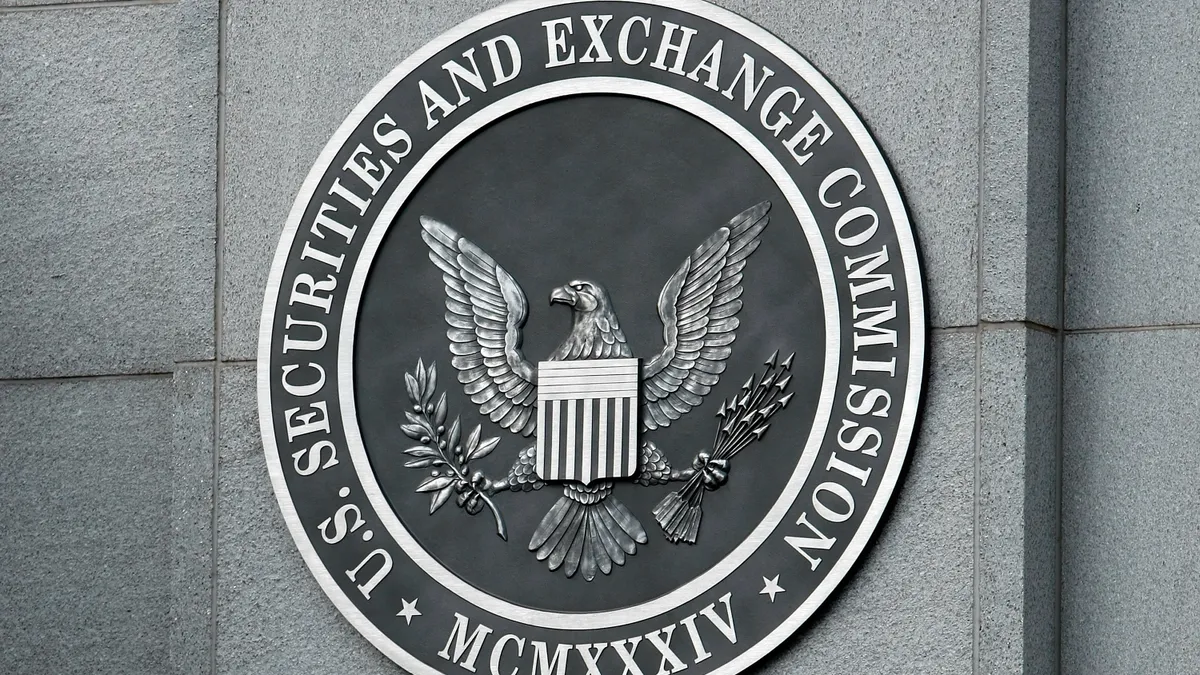LAS VEGAS — SEC Commissioner Hester Peirce, seen by many in the crypto space as a regulatory ally for her multiple dissents from crypto-focused Securities and Exchange Commission enforcement actions, doesn’t see the “Wild West” of crypto as necessarily a bad thing.
While there were and “a lot of bad things that happen in the name of crypto … I want to go beneath that, and explore [that] while there was a lot of wild in the west, there were also a lot of really interesting things happening, and I think the same is true in crypto,” she said Monday at the Money 20/20 conference.
“There are a lot of really interesting characters who go into crypto, but that means there's also a lot of really interesting work being done there,” she said. “I think it's important for us to not paint with such a broad brush to just say it's all bad, but to look for ways that we can work with what's going on in crypto to pull the good out and push the bad under.”
The SEC has come down hard on several crypto companies in recent history, including Coinbase, Kraken, Nexo and Ripple.
Coinbase CEO Brian Armstrong said in June, after being sued by the regulator, that despite SEC Chair Gary Gensler’s public assertions to “come in and register,” there is “no path ... we tried, repeatedly ... [and] reject the vast majority of assets we review,” Armstrong said.
“Instead of publishing a clear rule book, the SEC has taken a regulation by enforcement approach that is harming America,” he said. “So if we need to avail ourselves of the courts to get clarity, so be it.”
Recently, though, crypto firms have notched two wins against the SEC.
First, a federal judge ruled in July that the sale of Ripple’s native token XRP on public exchanges didn’t violate federal securities laws because, while it’s a security when sold to institutional investors, XRP is not a security when sold to retail investors trading on digital asset exchanges. The judge then rejected the SEC’s motion to appeal in October and, in a “stunning capitulation,” the SEC asked to dismiss its lawsuit against Ripple execs last week.
Second, a federal appeals court in August said that the SEC was wrong to reject a proposed bitcoin exchange-traded fund — which if approved could be traded like any other stock on a traditional stock exchange — by crypto asset manager Grayscale.
The SEC’s decision to reject Grayscale’s ETF was “arbitrary and capricious,” the court said. The court formalized Grayscale’s win Monday.
Peirce, for her part, said Monday she doesn’t know if fighting these cases is the best use of resources for the commission.
“We as a regulator have an obligation to look at the statutes that Congress gave us and to figure out how to enforce those statutes in a way that's not arbitrary, that's reasonable and that weighs the fact that it takes commission resources to bring a case,” Peirce said.
Peirce emphasized that there is still place for enforcement, but that the SEC should be judicious about where it puts its resources.
“You don't gamble when you go into the courtroom. You have to be very confident that you have a strong legal case going in, so I do worry that some of the things that we're doing in the crypto space could have adverse effects on the rest of the agency’s work, both in terms of taking resources away from important work, but also in terms of setting precedents that are that are not [what we should set],” she said.
Rather than regulating by enforcement, she said, “Isn’t it better if, as we see things developing … why don't we go ahead and help people by thinking through some of the issues ahead of time? And I think that would give people who are really just trying to build the technology … it would allow them to just kind of do their thing, understanding the general parameters. I think it's just a much more efficient way to regulate rather than trying to do this through enforcement.”















